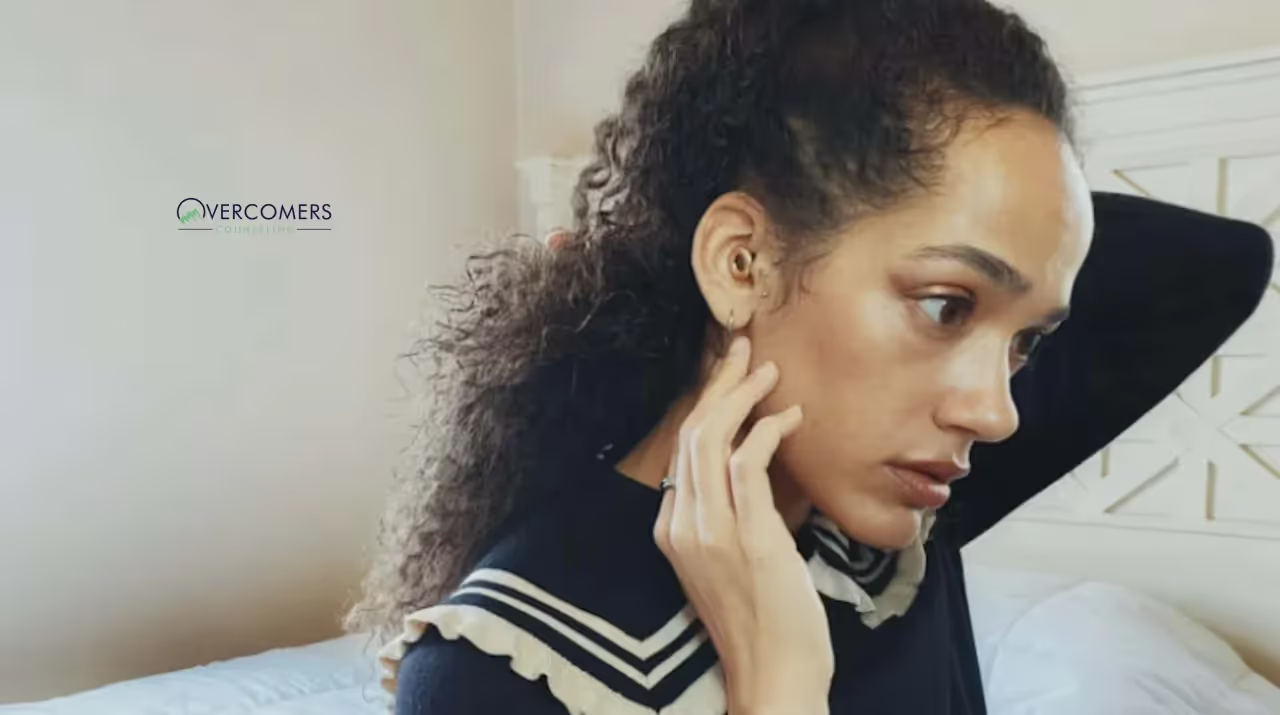Attention Deficit Hyperactivity Disorder (ADHD) in women is often misunderstood and underdiagnosed. Many women live with undiagnosed ADHD, causing them to...

Attention Deficit Hyperactivity Disorder (ADHD) in women is often misunderstood and underdiagnosed. Many women live with undiagnosed ADHD, causing them to struggle in silence with symptoms like difficulty focusing, mood swings, and low self-esteem. Let's take a look and see if we can shed light on the signs, symptoms, and treatment options for ADHD in women. I've seen first hand how ADHD can affect people, so it's a good idea to get a fresh understanding of what to look our for and what one can do about it.
ADHD symptoms in women can manifest as inattention, hyperactivity, or impulsivity. However, girls tend to exhibit less disruptive behaviors compared to boys, leading to missed diagnoses. Key symptoms include difficulty completing tasks, talking excessively, and struggling with time management.
Treatment options for women with ADHD often involve a combination of medication, therapy, and lifestyle modifications. ADHD medications, such as stimulants, can help manage symptoms. Therapy with a mental health professional can provide coping strategies and support. Lifestyle changes like regular exercise and a healthy diet can also be beneficial.
If you need ADHD counseling in Colorado, then Overcomers Counseling can help you with that both in-person and online.
Women with ADHD tend to experience more emotional and psychological distress, which can impact social relationships. They may also struggle with impulse control, leading to risky sexual behavior or substance abuse. Support groups can provide a safe space for women to discuss these challenges and find understanding and advice.

Attention-Deficit/Hyperactivity Disorder (ADHD) can significantly impact the daily lives of adult women, often manifesting itself in ways that are unique compared to men or young girls. Women with ADHD tend to experience symptoms like inattention, hyperactivity, and impulsivity, but these symptoms might be less noticeable and more internalized, making an accurate diagnosis challenging. For example, a woman with ADHD might struggle with managing daily tasks or professional tasks due to chronic forgetfulness and disorganization. She might consistently miss deadlines, lose items frequently, or have difficulty focusing on a single task at a time. This could lead to feelings of frustration, low self-esteem, and even anxiety.
In social situations, a woman with ADHD might exhibit excessive talking, struggle with listening attentively, or often interrupt others during conversations. These hyperactive-impulsive symptoms might be misconstrued as rudeness or lack of interest, which can strain relationships and lead to feelings of isolation.
Physical symptoms such as restlessness can also be prevalent. An adult woman with ADHD might constantly fidget, have trouble sitting still during meetings, or feel an ongoing sense of inner restlessness.
It's important to note that ADHD symptoms can evolve over time. Childhood symptoms, such as hyperactivity, might present differently in adult women. For instance, hyperactivity in young girls might appear as an inability to sit still, while in adult women, it might manifest as a constant feeling of being overwhelmed or perpetually busy.
The process of getting an ADHD diagnosis as an adult woman can be complex due to the unique manifestation of symptoms. With proper diagnosis, treating ADHD becomes more effective.
ADHD treatment typically involves a combination of medication, psychotherapy, and lifestyle changes, all aimed at managing symptoms and improving overall quality of life. It's crucial for women who suspect they might have ADHD to seek professional help. With the right support and treatment, women diagnosed with ADHD can lead productive, fulfilling lives.

ADHD is a neurodevelopmental disorder characterized by symptoms such as difficulty focusing, hyperactivity, and impulsivity. According to the Diagnostic and Statistical Manual of Mental Disorders (DSM-5), these symptoms must interfere with or reduce the quality of social, academic, or occupational functioning to warrant a diagnosis.
It can be challenging to live with for many of those affected. So it's important to be considerate and understanding when communicating with someone with this.
Book: https://archive.org/details/diagnosticstatis0005unse
Recent studies suggest that many adult ADHD cases in women go undiagnosed due to gender-based societal expectations and cultural biases. More research is needed to understand the gender differences in ADHD and to improve diagnostic criteria and treatment options for women.
For more detailed insights into the current research on ADHD in women, including the challenges of diagnosis and treatment, please click here. This link leads to a comprehensive collection of studies and articles that explore the intricate dynamics of ADHD, emphasizing the necessity for a gender-specific approach in both diagnosis and therapeutic intervention.
Understanding and diagnosing ADHD in women is crucial for providing effective treatment and support. By recognizing the signs and symptoms, seeking help from mental health professionals, and utilizing available treatment options, women with ADHD can lead successful and fulfilling lives. For women, ADHD should be addressed if your own symptoms are causing disruptions to your life. If you think you need to get your ADHD diagnosed by a professional, then schedule a call with a medical professional who can assist you.
Inattentive type ADHD is characterized by difficulty paying attention, forgetfulness, and disorganization. Women with this type of ADHD may struggle with completing tasks, following instructions, and maintaining focus.
No. We DO offer counseling (talk therapy) or medication management for individuals with ADHD or ADHD type symptoms. If you are looking for a formal evaluation involving extensive testing, you will need to seek a Psychologist.
Women with high functioning ADHD may appear to manage their symptoms well but still struggle internally. They may have successful careers but struggle with time management, organization, and maintaining social relationships.
While not listed as a core symptom in the Diagnostic and Statistical Manual, research suggests that emotional dysregulation is a common and impactful aspect of ADHD.
Untreated ADHD in women can lead to low self-esteem, mood swings, and difficulty focusing. It can also increase the risk of eating disorders, substance abuse, and other mental health issues.
Yes, both children and adults with ADHD can experience emotional dysregulation. However, the manifestations may differ, with adults often having more complex processes and coping mechanisms.